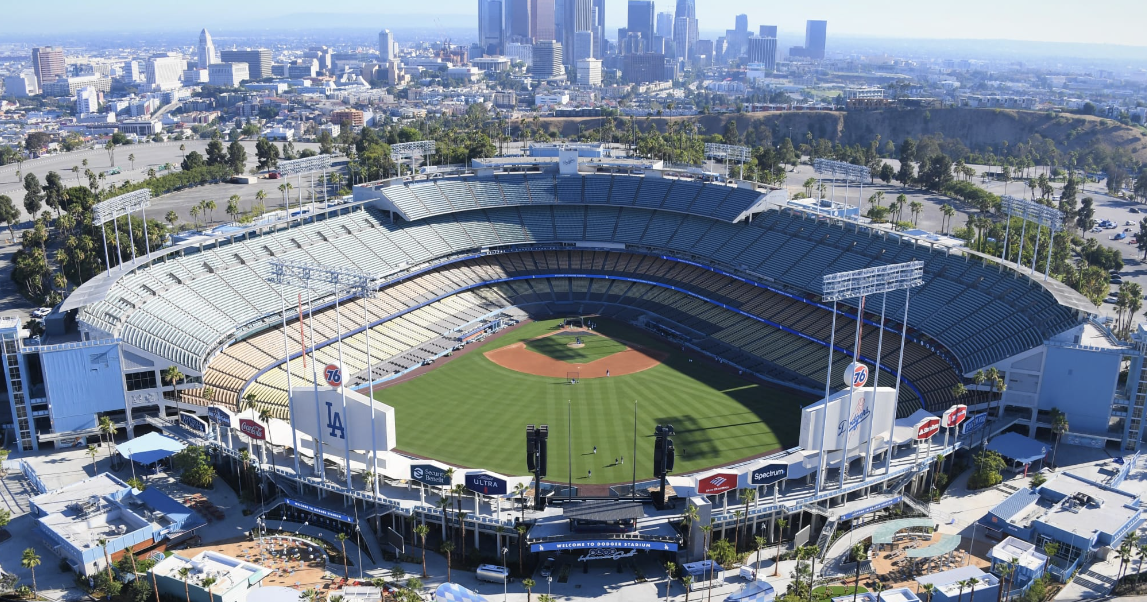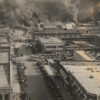
LOS ANGELES – While fans flocked to Dodger Stadium Thursday for the team’s home opener, a local legislator is pushing a bill proposing reparations for families and people who were displaced from their homes for the development of the iconic stadium in the 1950s.
The bill aims to correct “an injustice” that displaced families and has “lingered” in the shadows of L.A. history, according to Assemblywoman Wendy Carrillo, D-Los Angeles.
Last week, Carrillo announced the “Chavez Ravine Accountability Act,” or AB 1950, during a news conference at Elysian Park’s Los Desterrados (The Uprooted) Historical Marker.
“In the 1950s, the vibrant communities of Palo Verde, La Loma and Bishop were home to mostly Mexican American, as well as Italian American and Chinese American, families (who) saw an upheaval as they were uprooted and displaced in the name of progress with false promises of housing,” Carrillo said.
A representative for the Dodgers did not immediately respond to a request for comment.
The communities were later called Chavez Ravine, named after Julian Chavez, a rancher who served as assistant mayor, city councilman and eventually as one of the county’s first supervisors.
Carrillo added, “Families were promised a return to better housing, but instead they were left destitute.”
She said her bill would result in what she described as “historical accountability” by creating a public and searchable database detailing events surrounding the land acquisition. Carrillo said she hopes it will foster transparency and educate a broad audience about a pivotal moment in Los Angeles history.
Her bill also outlines various forms of compensation, such as offering city-owned real estate comparable to the original Chavez Ravine land owners, providing fair market value compensation adjusted for inflation and establishing a permanent memorial.
The city of Los Angeles, meanwhile, would be required to form a nine- member task force to oversee and provide such compensation.
Many families owned homes and established themselves in Chavez Ravine at a time when homeownership was difficult. According to reports at the time, Chavez Ravine encompassed about 315 acres with a grocery store, a church and an elementary school. The community was self-sustainable as many residents grew their own food and raised animals.
In the early 1950s, the city of Los Angeles began efforts to acquire the land and urged homeowners to sell — some developers offered money — and in some cases government officials used the power of eminent domain and forced residents out. Many families were taken advantage of and received less than what they deserved for their properties and land, according to Carrillo.
There were plans to develop public housing on the land, called the Elysian Park project, but in 1958 voters approved a measure to trade 352 acres of land at Chavez Ravine to the Dodgers. In the trade, the city acquired Wrigley Field in South Los Angeles, home of the Pacific Coast League’s Los Angeles Angels. The stadium was demolished in 1969 and replaced by the Gilbert W. Lindsay Community Center, named for Los Angeles’ first Black councilman.
Any remaining families on the land were forcibly evicted from their homes on Friday, May 9, 1959, by sheriff’s deputies, with bulldozers were ready at hand. This day was later called “Black Friday” by residents of Chavez Ravine.
Dodger Stadium officially opened in 1962.
“What we seek to address with AB 1950 is knowledge, understanding and healing that is long overdue,” state Insurance Commissioner Ricardo Lara, a sponsor of the bill, said during the news conference.
Lara said they have an opportunity to address the wrongdoings, and the bill will serve as a “vehicle for reconciliation and healing for all residents of Los Angeles, including the Los Angeles Dodgers.”
Alfred Fraijo, founder and CEO of the law firm Somos Group, said his organization assisted Carrillo and the commissioner on development of the bill.
“I grew up housing insecure in L.A. and grew up with the story of what happened to the residents of La Loma, Bishop and Palo Verde. It was part of our cultural identity in some ways, a part of our own shared stories of discrimination and invisibility,” Fraijo said.
He said the bill is part of a larger movement to address historic injustices, adding, “As a country, we have yet to officially account for how this hostility has limited the economic prosperity of so many people of color.”


